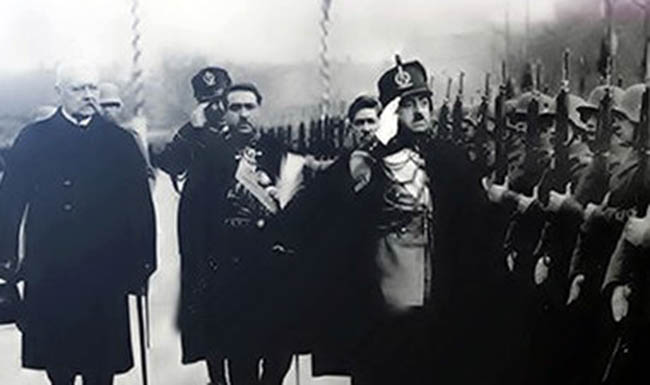KABUL - Afghans around the country celebrated the 97th anniversary of Independence on Thursday – a day marked each year on August 18.
Although Afghanistan was never part of the British Empire, it gained its independence from Britain after the signing of the Anglo-Afghan Treaty in 1919 – a treaty that granted complete neutral relations between Afghanistan and Britain.
Despite Afghanistan never having been part of the British Empire, Britain fought three wars in the country.
The first Anglo-Afghan War (1839-1842) led to the defeat of the entire British-led Indian invaders by Afghan forces under Abdur Akbar Khan. The second Anglo-Afghan War (1878-1880) first saw the British defeated in the Battle of Kandahar only for them to emerge victors – which led to Abdur Rahman Khan becoming the new emir.
This ushered in a new era of friendly British-Afghan relations. Following this war, the British were given control of Afghanistan's foreign affairs in exchange for protection against the Russians and Persians.
In 1901 Abdur Rahman Khan's son, Habibullah, succeeded him.
Habibullah was a relatively reform-minded ruler who attempted to modernize his country. During his reign he worked to bring modern medicine and other technology to Afghanistan and worked to put in place progressive reforms in his country.
He was assassinated while on a hunting trip in Laghman Province on February 20, 1919. His brother Nasrullah Khan briefly succeeded him as emir and held power for a week before being ousted and imprisoned by Amanullah Khan, Habibullah's third son.
However, the third Anglo-Afghan War started the same year and resulted in the British giving up control of Afghanistan's foreign affairs in 1921.
Within a few months, the new emir had gained the allegiance of most tribal leaders and established control over the cities.
Amanullah's ten years of reign initiated a period of dramatic change in Afghanistan in both foreign and domestic politics. Starting in May 1919 when he won complete independence in the month-long Third Anglo-Afghan War with Britain, Amanullah altered foreign policy in his new relations with external powers and transformed domestic politics with his social, political, and economic reforms.
"The reforms put in place in Afghanistan by him (King Amanullah Khan) are still visible in the country," said Mahbooba Seraj, cousin of Amanullah Khan.
"As founder of the innovation for creating the government and the governance and development, there is no doubt the signs of these efforts are still visible," said Hamidullah Nasir Zia, grandson of King Amanullah Khan's brother.
"He (King Amanullah Khan) created the tripartite bodies in Afghanistan and Loya Jirga," said former minister of economy Mohammad Amin Farhang.
Although his reign ended abruptly, he achieved some notable successes.
Before final negotiations were concluded in 1921 on the foreign policy issue, however, Afghanistan had already begun to establish its own foreign policy, including diplomatic relations with the new government in the Soviet Union in 1919.
During the 1920s, Afghanistan established diplomatic relations with most major countries, and Amanullah officially became king in 1923.
On 14 January 1929, Amanullah abdicated and fled to neighboring British India while Afghanistan fell into a civil war. From British India he went to Europe where he died in Zürich, Switzerland, in 1960.(Tolonews)
Home » Afghanistan » Afghanistan’s Independence, a Milestone in History
Afghanistan’s Independence, a Milestone in History

